Duma Team Chyulu Update: 01 October 2009
Participants:
James Mbuthia.-Team leader Sgt.Nderu Munyei. Julius Kyalo. Daniel Lekoiten Musangau Ndoki. David Wambua
Area of operation:
During the month of October the team patrolled the following areas: Kari and kibwezi forest
84 SNARES COLLECTED 6 ARRESTS (2 Bush meat poachers, 4 Charcoal burners)


OPERATION OBJECTIVES.
To remove and establish the extent of poaching through snaring To identify other negative human activities in the ranches To map the area and mark snaring spots. To document project findings
INTRODUCTION
Since the inception of the first desnaring team many animals have been rescued from snares, thousands of snares have been lifted and hundreds of poachers have been arrested. There has hardly ever been a month when no snares were retrieved by the desnaring teams. As the desnaring project has grown we have also changed so as to include the community in our work in an effort to educate the public about conservation and their environment. The current poverty levels per household, and the proximity of the people to the parks and the ranches, is a major conservation concern that cannot be ignored. It is therefore good to note that quality and sustainable development can only be attained where there is open dialogue of equals between conservationists and the communities neighbouring the parks and the ranches. Without people’s structures of participation and empowerment, more and more resources will be used without meeting our long term conservation objectives. The future of wildlife conservation in Kenya lies with the communities living near the protected areas.
Current situation. Due to the drought wildlife has dispersed out of the protected areas in search of food and water, which makes them more vulnerable to poachers. The poaching methods are constantly changing from snaring to lamping to bows and arrows.
Kibwezi forest. The patrol of kibwezi forest was aimed at keeping pressure on the hotspots and supporting the Umani team. Herds of Zebras coming from the chyulus have made forest as their new ranging area. The security of the Umani area and that of the forest in general is a priority for the teams. The team patrolled around Kenze and ndeini and managed to arrest 4 charcoal burners.
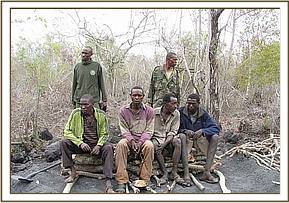
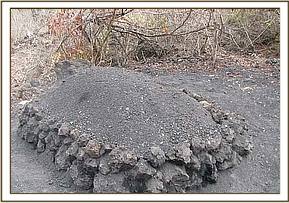

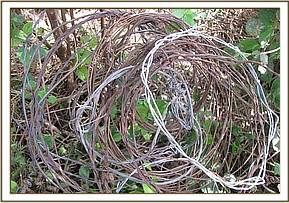
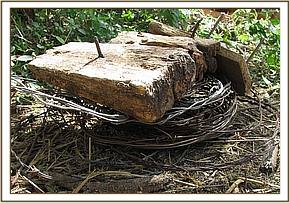

Kari. The ranch is a buffer to the Chyulu national park and accommodates a lot of wildlife. When the park was burnt by arsonists earlier in the year the animals migrated to the ranch for refuge and became vulnerable to poaching. No other ranch has witnessed the kind of slaughter that is seen at KARI. Though a hotspot it is also the most hostile area for the desnaring team. It calls for strategy, and skills to have any successful arrests as people move in gangs and are usually armed with bows, arrows, slashers etc. While patrolling, the team found remains of dead animals like, zebras, hartebeests and gnus.
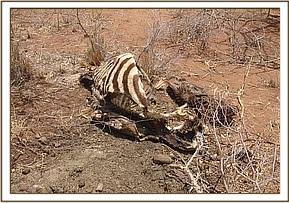

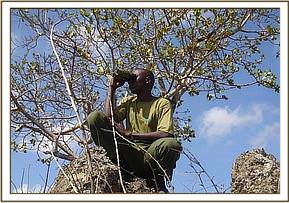
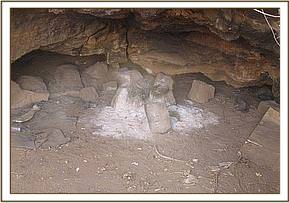
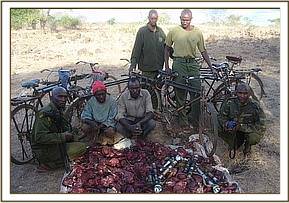

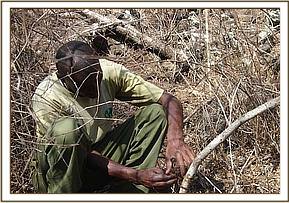
Community awareness.
This month Musini primary school benefited from a school trip to the park. The most active members of the schools wildlife club were the ones taken on the trip. During the trip they visited shetani lava, mzima springs and chaimu hill.
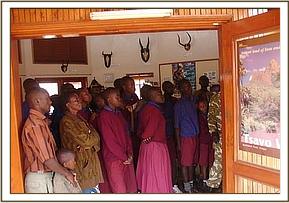

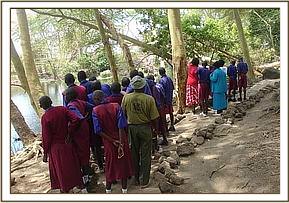
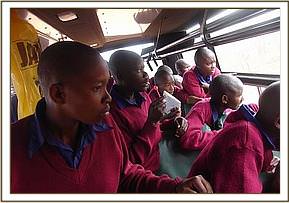

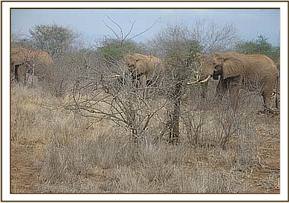

Soto primary school benefited from a video show featuring the elephants of Tsavo. The event opened a forum for discussions on how important it is to conserve wildlife.


Report by James Mbuthia